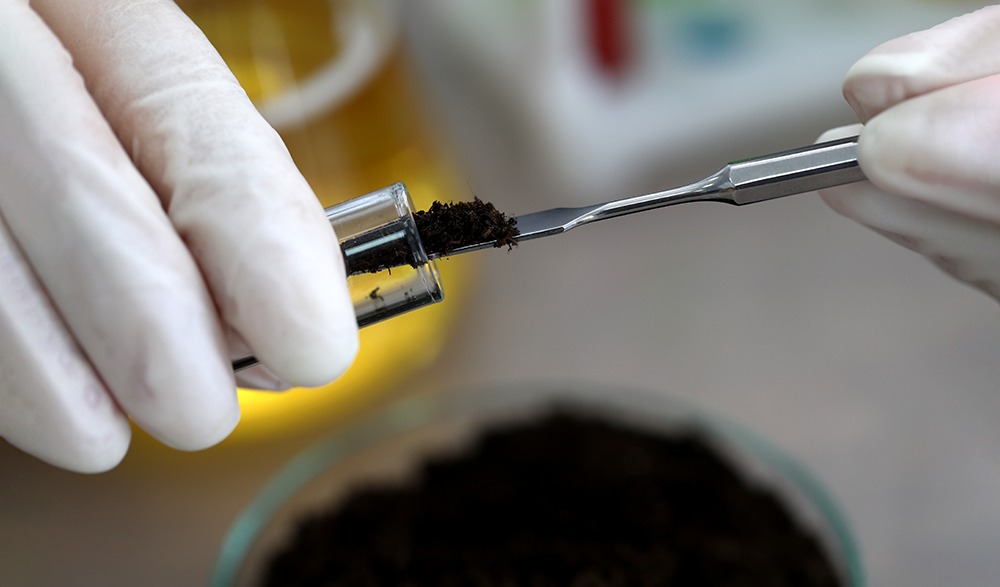Burlington, Mass., March 14, 2023 – Haley & Aldrich announced today that its Applied Research program has won nearly $2 million in funding from the U.S. Department of Defense (DOD) for three new research projects. These projects will investigate cost-effective methods for the treatment of soil and water containing per- and polyfluoroalkyl substances (PFAS) — often referred to as “forever chemicals” that studies have linked to adverse human health effects.
The funding comes from the DOD’s Strategic Environmental Research and Development Program (SERDP) and the Air Force Civil Engineer Center Broad Agency Announcement (AFCEC BAA) program, both major supporters of environmental research. Haley & Aldrich’s Applied Research program has partnered with SERDP and AFCEC BAA on cutting-edge projects for more than a decade, with billings topping $7 million.
“We are proud of the new technologies and processes we’ve developed, and continue to develop, with these programs’ support,” says Murray Einarson, Haley & Aldrich’s contaminated site management service leader. “This partnership enables us to address future challenges by testing new ideas and solutions.”
Haley & Aldrich consultants John Xiong and Jacob Chu will lead the three new projects, which focus on developing PFAS precursor transformation assessment tools and a PFAS removal and destruction treatment train, testing their viability, and implementing them across military bases. Due to the storage and use of aqueous film-forming foam — which contains PFAS and is used to fight fires at many military and commercial sites — the DOD has a strong interest in understanding and developing effective, efficient PFAS detection and treatment methods. And because PFAS are ubiquitous in the environment, Haley & Aldrich’s research has the potential to advance the state of PFAS assessment and remediation at nonmilitary sites as well.
With the addition of these three projects, the Applied Research group has nine funded environmental research projects underway, many of which focus on emerging contaminants like PFAS. The new projects kicked off in late 2022 and early 2023 and are expected to run through 2026.
For more information:
Contact our media team.



